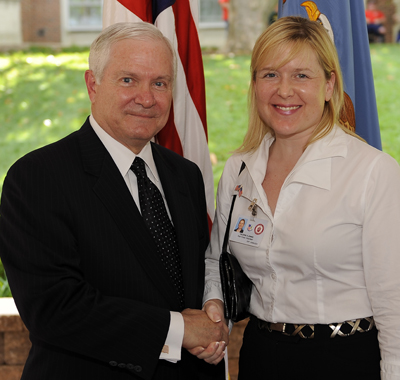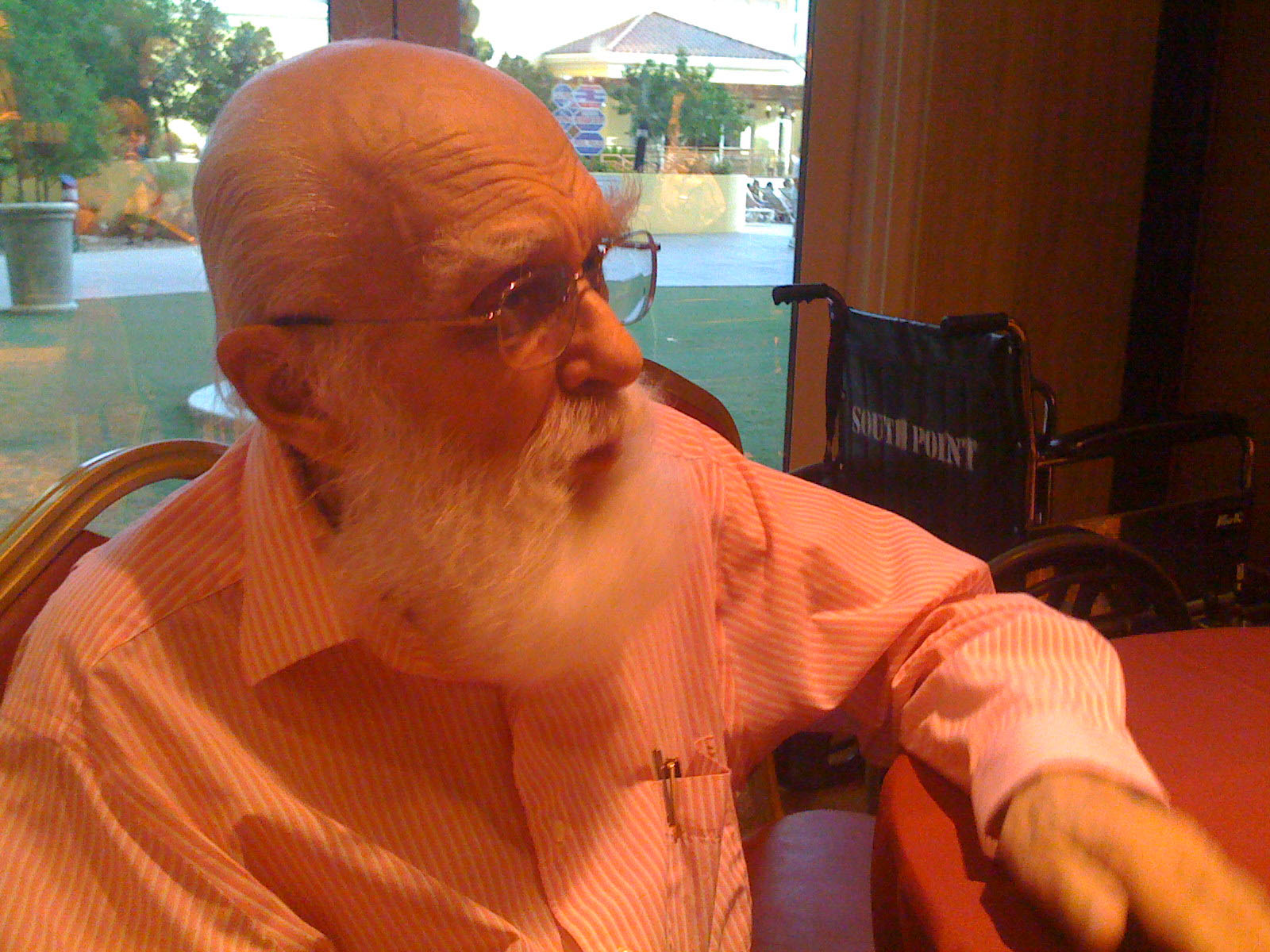August 1st, 2009 by MotherJonesRN in Better Health Network, Expert Interviews, Health Policy
Tags: Blog, Healthcare reform, Howard Dea, Mother Jones, Nurse Ratched, Nursing, Public Plan, Single Payer, Terri Polick
No Comments »

 I love the Internet. It has a way of bringing people closer together. I saw Governor Howard Dean at a town hall meeting in Washington D.C earlier this month. He’s a dynamic speaker. I wanted to ask him some questions, but the place was packed, so I couldn’t get close to him. Not to be deterred, I emailed Governor Dean in hopes of getting a response to a couple of my questions. He not only responded to my email, he agreed to an interview for my blog. See, the Internet really can bring people closer together. I want to thank Governor Dean for stopping by Nurse Ratched’s Place to talk about healthcare reform.
I love the Internet. It has a way of bringing people closer together. I saw Governor Howard Dean at a town hall meeting in Washington D.C earlier this month. He’s a dynamic speaker. I wanted to ask him some questions, but the place was packed, so I couldn’t get close to him. Not to be deterred, I emailed Governor Dean in hopes of getting a response to a couple of my questions. He not only responded to my email, he agreed to an interview for my blog. See, the Internet really can bring people closer together. I want to thank Governor Dean for stopping by Nurse Ratched’s Place to talk about healthcare reform.
Question: What is your take on the state of our healthcare system? What do you envision for our system, and how do we get there from here? Can America really afford a public option plan?
Answer: Our system is in disarray. We need a system in which the American consumer has real choices, including allowing people under 65 to sign up for Medicare, which is what the public option will look like. That way people can get affordable insurance which can never be taken away, which can’t be denied, and which will follow them through every job, every loss of job, and every move. We can’t afford NOT to have a public option.
Question: How flexible is the public option: will a person be able to move between the public option and private options as their needs and circumstances change?
Answer: People will be able to move back and forth between the public option and private insurance plans as they see fit, up to once a year.
Question: Given your unique perspective as a physician, can you tell us one aspect of the public option that you like and one aspect that you might not be happy with?
Answer: As a physician I would sign up for the public option at once if it is cheaper than what I have now. I would definitely sign my twenty something kids up; it would give them insurance for life at a reasonable cost no matter what they were doing and where they were living.
Question: One of my nursing coworkers wanted me to ask you this question. How will healthcare reform impact nursing workforce issues? Will we see mandated caps on salaries, and how will healthcare reform impact nurse to patient ratios?
Answer: Workforce issues are not addressed in any of the health care options being discussed in Congress. Most Democrats I know favor nurse/patient staff ratios to protect quality of care.
Question: Preventative healthcare is a key component in the healthcare reform debate. What are your thoughts on a proposal that would make the Chief Nurse Officer of the United States Public Health Service the National Nurse? In your opinion, would establishing the Office of the National Nurse have any impact on health promotion or on healthcare reform?
Answer: As a lot of people know, I am a huge supporter of the Office of National Nurse, and since Congress has been slow to act, I am hoping some changes can be made directly by HHS while we await more complete action by Congress.
*This blog post was originally published at Nurse Ratched's Place*
July 28th, 2009 by Berci in Better Health Network, Expert Interviews, News
Tags: Journals, Physicians, Scientists, Social Media, Twitter, Twitter Names, User Names
No Comments »

If you’re looking for the best biomedical journals that have a presence on Twitter.com as well, here is a list that will help you find what you need.

*This blog post was originally published at ScienceRoll*
July 22nd, 2009 by Dr. Val Jones in Audio, Expert Interviews
Tags: American Airlines, Charity, DOD, Featured, Flights, Podcast, Red Cross, Robert Gates, Secretary of Defense, Veterans, Walter Reed Army Medical Center
No Comments »

Defense Secretary Gates With Dr. Val
I recently wrote about the heroic efforts of volunteer pilots involved in Mercy Medical Airlift and Air Compassion for Veterans. I met Steve Craven on a shuttle to a Red Cross event with US Defense Secretary Robert Gates. Steve kindly explained a little bit about what some airlines are doing to contribute to our active duty and veterans’ medical transportation needs. I was soon contacted by American Airlines to help them with awareness efforts of their own veterans initiatives.
I interviewed Captain Steve Blankenship, the Managing Director of Veterans Initiatives at American Airlines. Feel free to listen to the podcast or read a summary of our discussion below.
[audio:https://getbetterhealth.com/wp-content/uploads/2009/07/captain-blankenship.mp3]
Dr. Val: Tell me a little bit about yourself, Captain.
Blankenship: Being a veteran myself (20 years with the US Cost Guard) a count it a real privilege to serve our veterans. During my first 8 years with the Coast Guard I was a helicopter rescue crewman doing search and rescue based out of Miami, Florida. I eventually went to navy flight training and retired from the military in 1991 and was hired to fly for American Airlines for the next 14 years. In 2004 I helped to launch their Veterans Initiative.
Dr. Val: Tell me about Operation Iraqi Children and Snowball Express.
Blankenship: There are so many children who have never been in uniform, but who have paid the ultimate price of losing a mom or a dad in war as they defend our freedoms. American Airlines is particularly proud to be supporting childrens’ initiatives. The Snowball Express program involves private flights around the country to pick up kids and their surviving parent to take them on a fun-filled trip during the difficult winter holiday season.
Actor Gary Sinise helped to co-found Operation Iraqi Children where we shipped over 25 tons of toys and educational materials to Iraq. Our troops were able to give out 10,000 individually wrapped gifts to young children in Iraq.
Dr. Val: What about American Airlines’ support of the iBot Mobility System for wounded veterans?
Blankenship: The iBot is a special kind of wheelchair (designed by the guy who created the Segway) that allows its user to sit at an eye level with someone standing next to them. They can also climb stairs. To date we’ve raised over $700,000 to buy these iBot Mobility devices for our wounded warriors.
Dr. Val: What else is American Airlines doing for veterans?
Blankenship: We fly wounded warriors and their families on charter flights from Brooks Army base to Disney World. We have three dedicated “yellow ribbon” airplanes that we use to fly recovering service men and women to events so they can get out of their rehab centers for a period of time and have fun with their families. This kind of charity comes naturally to us because American Airlines was founded by a military veteran and over 10% of our current staff are either active duty military personnel or veterans.
Every day we go to work, we recognize that the right and privilege we have to fly our airplanes and transport our passengers was paid for by the men and women who wear the cloth of our nation. American Airlines is continually looking for ways to thank them and support the efforts of our military.
Dr. Val: How do military and their families find out more about your programs and services?
Blankenship: They can send me an email directly and I’ll make sure they’re referred to the right place.
steve.blankenship@aa.com
July 20th, 2009 by Dr. Val Jones in Expert Interviews, Opinion
Tags: Alerts, Device Recalls, Drug Recalls, FDA, Food Recalls, HHS, Patients, Physicians, Public Health, Recalls, Social Media
No Comments »
I recently created a focus group survey of physician bloggers to determine how they (and their patients) typically receive food and drug alerts. Twenty people responded. The results to 5 key questions are displayed below.
My most interesting take home messages:
1. Most physicians surveyed first receive drug alerts via eNewsletters from companies like MedPage Today and Medscape. (This is consistent with the large number of page views achieved by these sites/month).
2. Most patients find out about recalls via mainstream media – TV and newspapers.
3. EMRs, ePrescribing tools, coaching programs, and social media networks (like Twitter) are perceived to be the most valuable means of disseminating targeted recall information to the right person at the right time.





July 18th, 2009 by Dr. Val Jones in Expert Interviews, Quackery Exposed
Tags: James Randi, James Randi Educational Foundation, JREF, Magic, Magical Thinking, Paranormal, Psychology, Snake Oil, TAM7
3 Comments »
 James Randi, perhaps better known as “The Amazing Randi” has spent most of his life performing magic shows. In 1996 he created the James Randi Educational Foundation (JREF) designed to expose the fraudulent claims made by psychics, faith healers, and snake oil salesmen. The ultimate goal of the JREF is to create a new generation of critical thinkers – people who will not be hoodwinked by the aforementioned hucksters.
James Randi, perhaps better known as “The Amazing Randi” has spent most of his life performing magic shows. In 1996 he created the James Randi Educational Foundation (JREF) designed to expose the fraudulent claims made by psychics, faith healers, and snake oil salesmen. The ultimate goal of the JREF is to create a new generation of critical thinkers – people who will not be hoodwinked by the aforementioned hucksters.
I had the good fortune of interviewing Mr. Randi briefly at the recent conference known as “The Amazing Meeting.” I was eager to pick his brain about human behavior and magical thinking. This is what I learned…
Randi identified certain groups of people who seem to be more susceptible to magical thinking and/or belief in the paranormal. According to him, the top two are:
1. News reporters. Although at first I wasn’t sure if Randi meant that reporters like a good story versus they believe a good story – he told me that in his experience, they were some of the most gullible people on earth. In fact, they were more interested in implausible stories than true ones – and Randi said that the more fantastical his explanation for phenomena, the more likely they were to believe it and write about it.
2. Academics. This surprised me since I assumed that this group would actually be less susceptible. Randi suggested that they are more likely to be taken in because they are single-minded about phenomena. They are over confident in their ability to understand how things work, and when something cannot be explained in their framework, they’re willing to attribute it to the paranormal.
Who are the least susceptible? Children. Why? Because they are simple thinkers, and harder to distract. The art of magic is in distraction of the sophisticated mind. Children tend to be very concrete, so they don’t expect things to happen with hand-waving and flourishes. They keep their eye on the coin (or other item being transferred from hand to hand), and are more likely to know where it is at all times.
To wrap up our short interview, I asked Randi if he could explain why people believe in magic, fantasy, and the paranormal? He responded simply:
Ultimately it’s not about intelligence or lack thereof. It’s about people not wanting to accept that life is random, suffering is inevitable, and there is no good reason for bad things happening.
What do you make of Randi’s observations?
 I love the Internet. It has a way of bringing people closer together. I saw Governor Howard Dean at a town hall meeting in Washington D.C earlier this month. He’s a dynamic speaker. I wanted to ask him some questions, but the place was packed, so I couldn’t get close to him. Not to be deterred, I emailed Governor Dean in hopes of getting a response to a couple of my questions. He not only responded to my email, he agreed to an interview for my blog. See, the Internet really can bring people closer together. I want to thank Governor Dean for stopping by Nurse Ratched’s Place to talk about healthcare reform.
I love the Internet. It has a way of bringing people closer together. I saw Governor Howard Dean at a town hall meeting in Washington D.C earlier this month. He’s a dynamic speaker. I wanted to ask him some questions, but the place was packed, so I couldn’t get close to him. Not to be deterred, I emailed Governor Dean in hopes of getting a response to a couple of my questions. He not only responded to my email, he agreed to an interview for my blog. See, the Internet really can bring people closer together. I want to thank Governor Dean for stopping by Nurse Ratched’s Place to talk about healthcare reform.



















